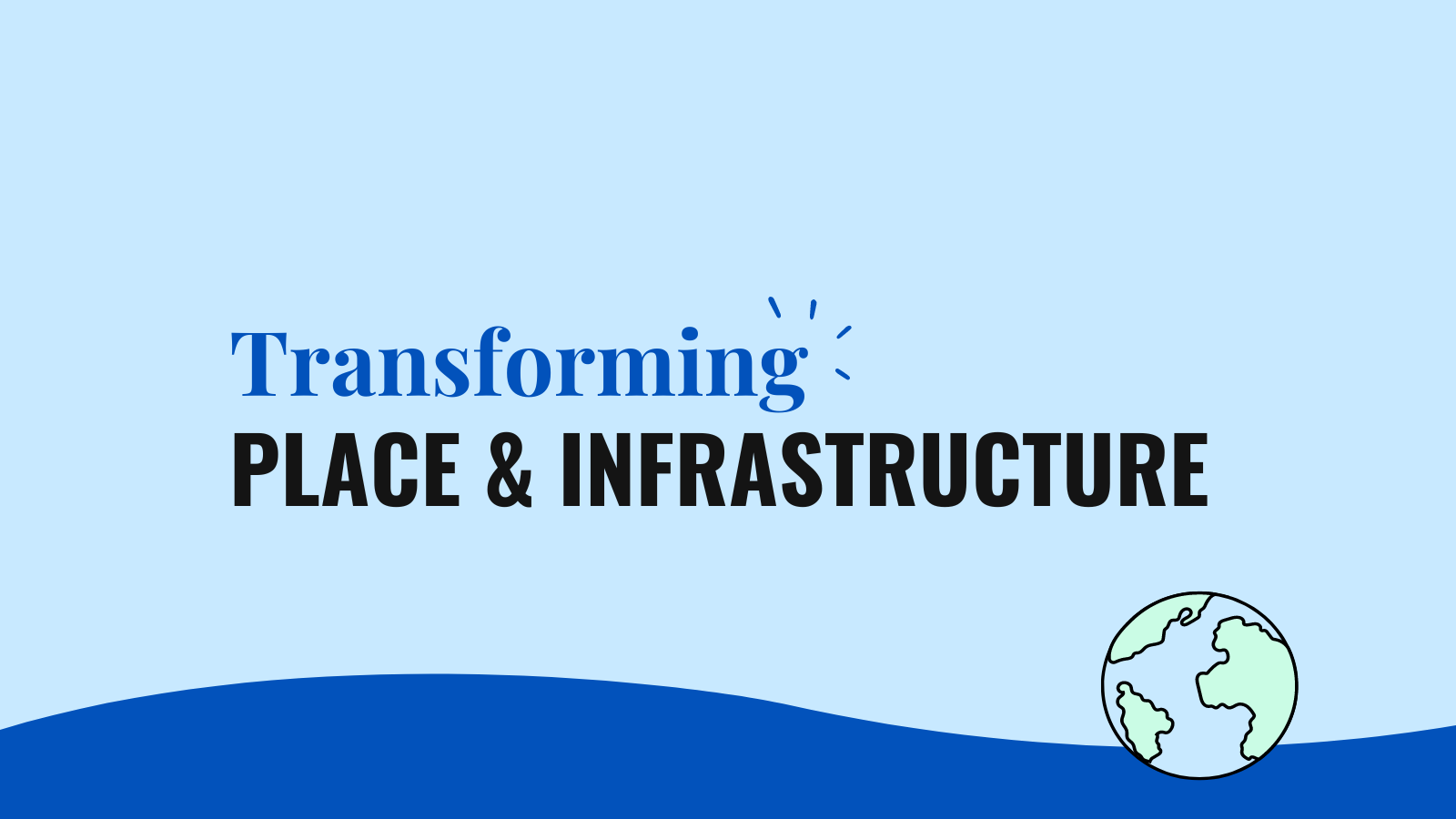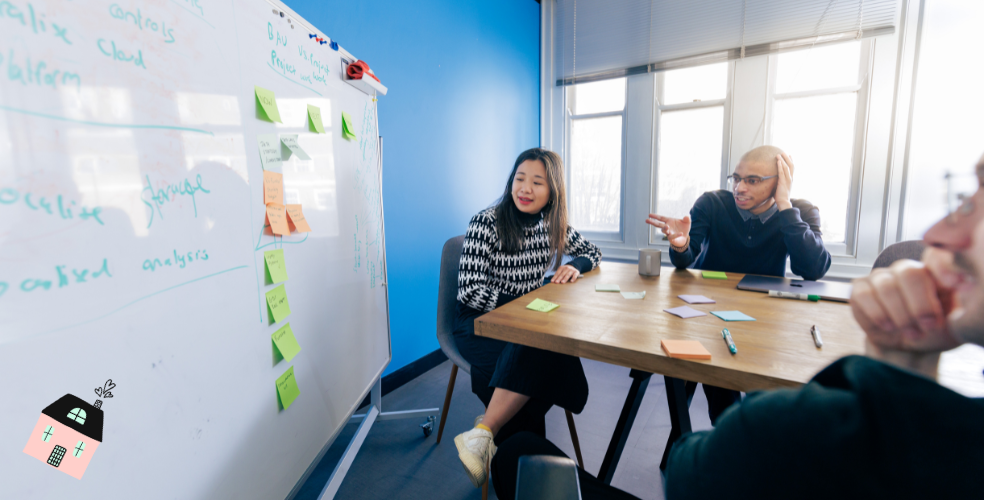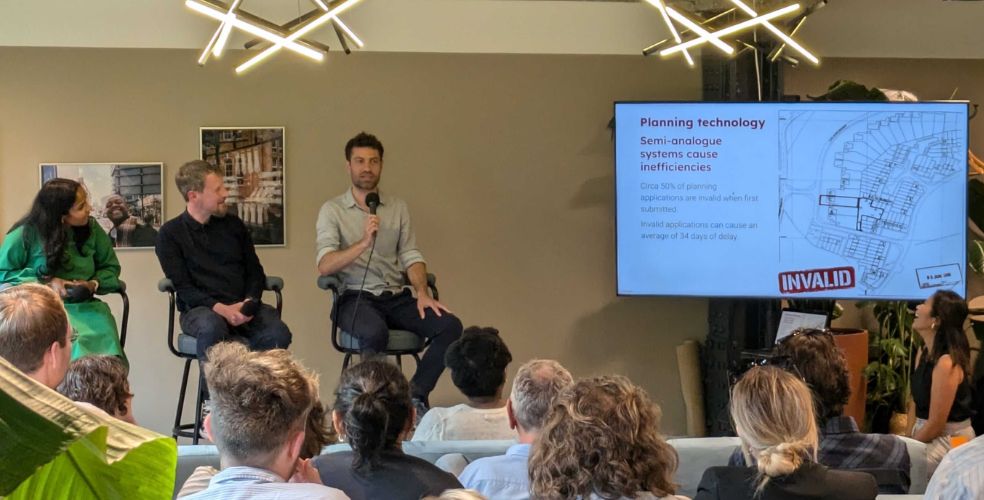Despite the focus of the new government on changing the planning system to accelerate the delivery of new homes, there are so many other factors that dictate the delivery of successful places. Building the net zero infrastructure to support sustainable living, developing in areas that have the transport capacity to make for pleasant travel, and ensuring that places have the greenery and nature to thrive, all this will require collaboration, coordination and innovation from multiple parts of government and industry.
At TPXimpact we have a place and infrastructure practice that’s dedicated to understanding the ambiguity, complexity and joy in working with disparate technical, design and subject matter expertise to create the conditions for better policy and delivery. In July, we brought together a group of ambitious changemakers from government and industry for our Digital Forum to discuss what needs to change to hit net zero, tackle the housing shortage, and keep our growth sustainable.
To help us explore these topics, we were delighted to welcome three experts from across the sector. Niki Kesharaju, Senior Decarbonisation Strategy Manager at National Grid; Robert Singleton, Head of Planning, Housing and Transport at the Department for Transport (DfT); and Matt Wood-Hill, Head of Digital Planning Software at the Ministry of Housing, Communities and Local Government (MHCLG).
The power of data and innovation
Each of our panellists mentioned how data and digital tools provide an opportunity to revolutionise the way we gain a shared picture of the energy and infrastructure challenges involved in creating sustainable places. It was agreed that having the right data is crucial for making smart decisions and we saw examples of this, with National Grid testing and trialling innovative solutions for better collection of data ‘in the field’ and the Department for Transport making it easier for planners, property developers and citizens to better understand the transport connectivity of different places.
Digital tools are helping to streamline processes and create smarter, more efficient systems. In short, data and digital innovation need to be at the heart of modernising infrastructure and making it work better for everyone.
"This is about saving time, saving money and securing better outcomes. And ultimately, we might achieve sustainable patterns of development."Rob Singleton
Head of Planning, Housing and Transport at the Department for Transport (DfT)
Putting people first
However, it’s not enough to simply create and implement new technologies and systems. They need to be designed with the people who will use them in mind. Only by understanding how people collect and consume data can we bring the right information to the right people to help plan and connect our places. By keeping the user experience at the centre of design and implementation, we can ensure that new solutions are both effective and user-friendly, leading to better overall results.
"You could sit in your own silo and design all of these wonderful products, but who's using them and who's going to be using them is absolutely key."Niki Kesharaju
Senior Decarbonisation Strategy Manager at National Grid
Learning from other sectors
Our speakers also encouraged looking outside our usual boundaries for inspiration. By exploring how other industries solve problems and integrating those ideas into infrastructure and energy projects, we can uncover new and creative solutions.
To do this, it will likely mean that government and industry will need to rethink recruitment practices. Instead of looking for and appealing to experts in one field, we should look for those with more diverse experiences across different industries and specialities. This approach will make it easier to apply successful methods from different areas to our own challenges, potentially leading to breakthroughs and improved practices.
Collaborate to innovate
Collaboration was also a major theme, with a strong focus on working together across different sectors. The discussion highlighted the need for partnerships between central government and local authorities, private companies, and other organisations to drive meaningful change in planning and infrastructure. Creating opportunities for these groups to share knowledge and data, as well as work on solutions, is essential for progress. By building a collaborative ecosystem, we can pool our resources and expertise to tackle problems more effectively and achieve better outcomes for everyone.
"Absolutely a cooperative approach seems to be working and provides us as a department and different stakeholders involved with credibility, scale, and hopefully, longevity."Matt Wood-Hill
Head of Digital Planning Software at the Ministry of Housing, Communities and Local Government (MHCLG)
Working together to achieve better outcomes
Hearing all our great speakers and guests, it’s clear we’re at a pivotal moment for change when it comes to place and infrastructure. By coming together and debating, sharing, and engaging, we’re taking steps in the right direction to create a more sustainable future that produces better outcomes for people, places, and the planet.
If you want to learn more about how we think about place and infrastructure, visit our team page or get in touch with our team.
Interested in getting involved in our next Digital Forum? You can register your interest in our Autumn event now.

Transforming place & infrastructure
We’re passionate about improving communities by partnering with public bodies to transform the built, natural and economic environment.
Work with us
Join us at the next Digital Forum
Digital Forum returns in the autumn! Register your interest below for details about our next event.
Register now
Planning reform: simplify, standardise, and engage
How we can streamline planning with clarity, consistency, and appropriate citizen input to boost development and hit housing targets.
Read moreOur recent insights
Transformation is for everyone. We love sharing our thoughts, approaches, learning and research all gained from the work we do.

Budget 2025 reveals how digital funding really works
Background: The Budget was announced yesterday, it’s not announcing big new programmes of work - it’s fine tuning how the government's fiscal policy supports existing policy objectives. There’s takeaways for all digital leaders from this announcement and some thoughts about that to do next.
Read more
Unlocking the benefits of AI for charities
How human-AI collaboration can help charities get true value from their data, turning insights into impact.
Read more
What's the future for open data in the UK?
A decade ago, the UK was a leader in open data, but its prominence has faded. We examine why the focus has shifted and what the future holds for the role of open data in the public sector.
Read more

